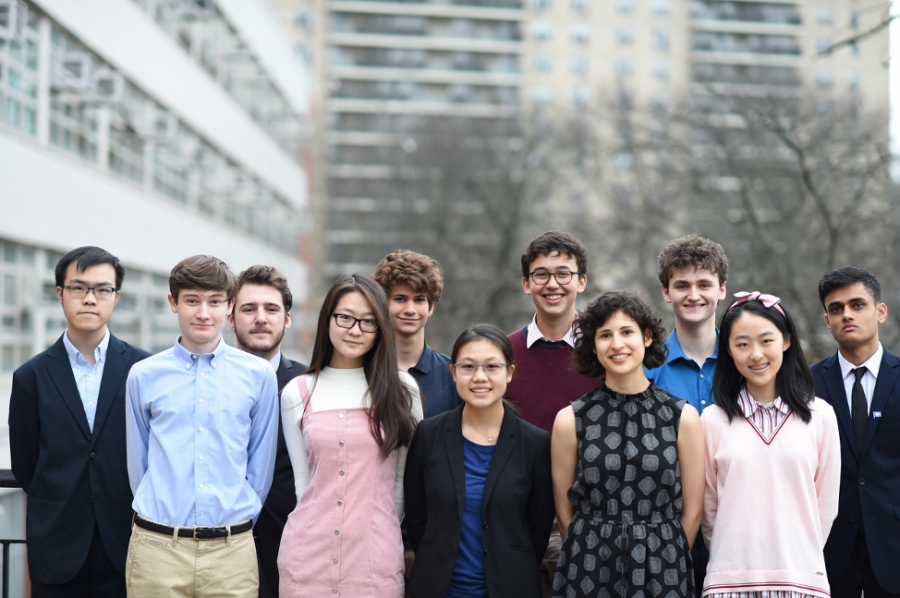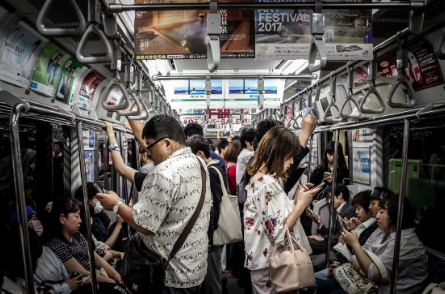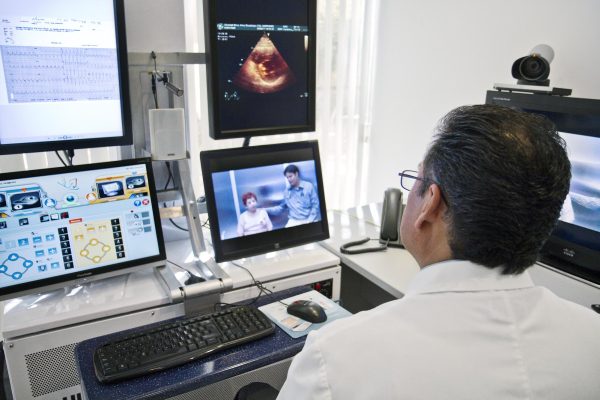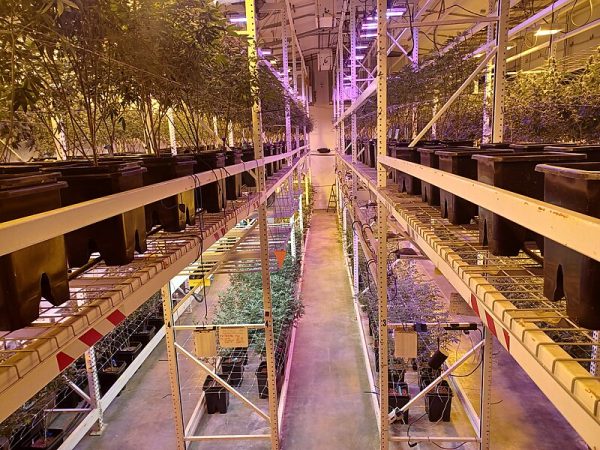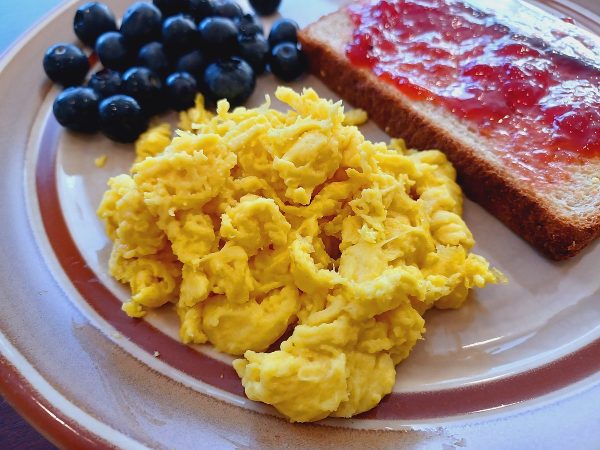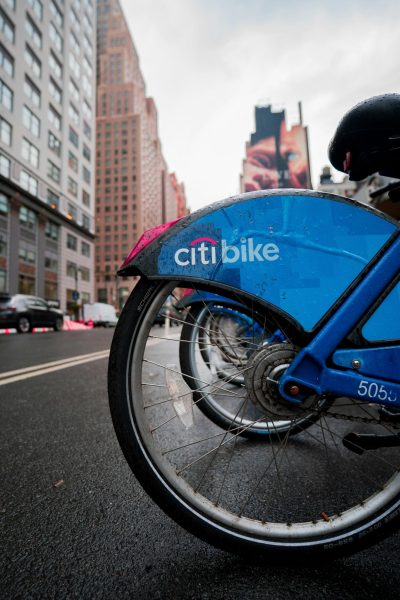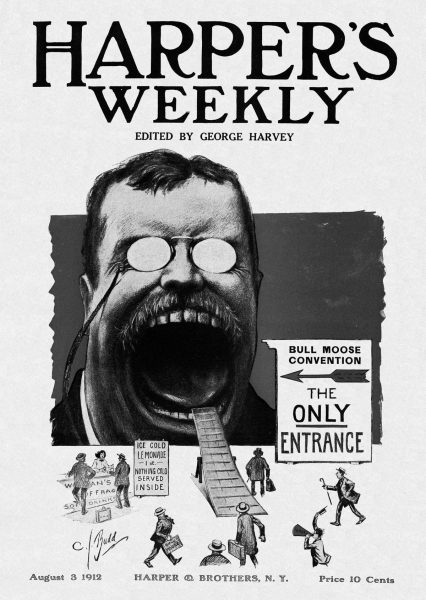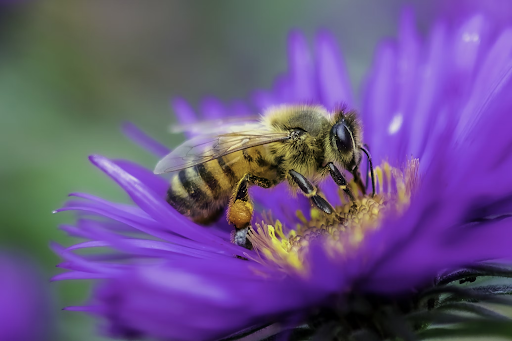A Profile of Our 2020 Regeneron Science Talent Search Scholars and the Research Program
Regeneron semifinalists from left to right: (back row) Kevin Zheng ’20 , Jared Lenn ’20 , Wyatt Morgan ’20 , Jonathan Bar-On ’20 , Jonah Massey ’20 , Syed Wahid ’20 (front row) Jeffrey Munsell ’20 , Helen Shao ’20 , Emily Chan ’20 , Zhaleh Mahootian ’20 , Yi Xie ’20
It all began way back in ninth grade with the decision that would change the course of our next three years: to research or not to research? For the students that decided to take the former path, the Regeneron Science Talent Search was the final destination. On January 8th, 2020, Regeneron announced the 2020 Scholars, and eleven Bronx Science students were named semifinalists. Bronx Science students made up 3.67% of the semifinalists out of a total of 300, tying with Bergen County Academics (Hackensack, NJ) for the most scholars in the country.
Let’s congratulate these semifinalists: Jonathan Bar-On ’20, Emily Chan ’20, Jared Lenn ’20, Zhaleh Mahootian ’20, Jonah Massey ’20, Wyatt Morgan ’20, Jeffrey Munsell ’20, Helen Shao ’20, Syed Wahid ’20, Yi Xie ’20, and Kevin Zheng ’20.
The Regeneron competition began with journalist Edward W. Scripps and zoologist William Emerson Ritter. The pair aimed to provide the public with up-to-date information about the latest discoveries in science. In 1922, they began distributing the Science News-Letter. In 1942, they started their first competition, calling it ‘Science Talent Search.’ While the program has had several sponsors over time, including the Westinghouse Electric Corporation (1942-1998) and the Intel Corporation (1998-2016), Regeneron is its current sponsor.
Receiving the honor of semifinalist brings satisfaction to the researchers because it validates their years of hard work. Our semifinalists’ research spanned a great many topics. We had semifinalists in social science, such as Jonah Massey. His work focused on the role political capital plays in corporate turnaround success. Wyatt Morgan, on the other hand, created a method of generating a Tandem-Guide RNA in order to improve the CRISPR system. Helen Shao went as far as studying cosmic neutral hydrogen from dark matter.
What is even more astounding is that being in high school has not stopped these students from studying topics with real-world significance. Jared Lenn’s project focused on finding a molecular way to target cancer cells by engineering a DNA sequence to bind to them. His goal was to prevent chemotherapy from harming the healthy cells and to only target the cancerous ones. “It’s pretty neat to be recognized for my work,” Lenn said. “It meant someone out there looked at my project and thought, ‘Wow, this is some real science.’” This is a major understatement, considering his engineered DNA successfully achieved its purpose.
One particular project even found itself underwater. Zhaleh Mahootian studied the formation of social groups in a species of snapping shrimp. Her results showed that snapping shrimp gain greater reproductive abilities as a result of communal living, and suggests similar benefits to other organisms as well. “I’m glad that the judges found the topic valuable, because I think it’s really interesting and cool,” said Mahootian.
Research can seem like a daunting task, and it certainly isn’t easy. The hours in the lab, reworking of methods, and analysis of data may not seem worth it unless you’re genuinely interested in your work. “It was one of the most difficult challenges that I had ever undertaken, but I found the end to be worth it,” said Emily Chan, whose project focused on the international STEM gap and its relationship to gender equality in those nations. “The best part of research is the ability to investigate what interests me and learn hands-on,” said Chan. That is the most important part of research: “You have to have an earnest passion for what you’re doing,” said Lenn. He continued, “but if you’re willing to put in the months of work… then it just might change your life.”
“The best part of research is the ability to investigate what interests me and learn hands-on,” said Emily Chan ’20.
Sofia Mahairas is the Editor-in-Chief of ‘The Sciencey Survey’ and a Staff Reporter for the ‘The Observatory.’ She enjoys journalism because...

